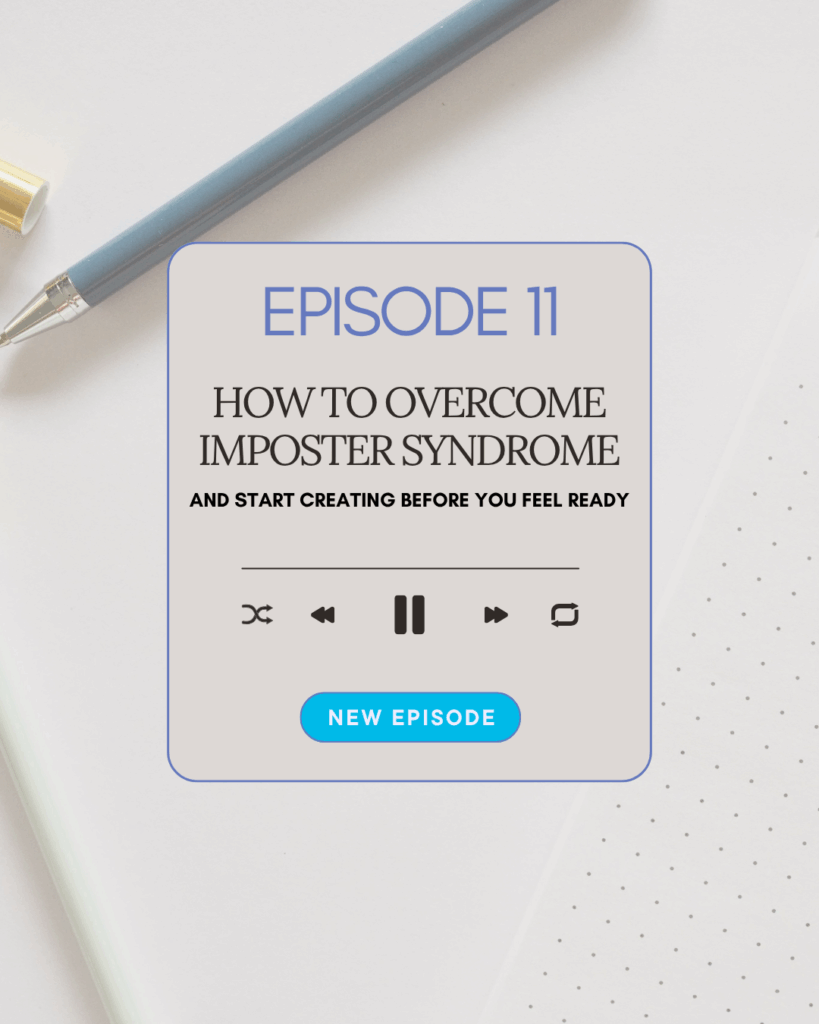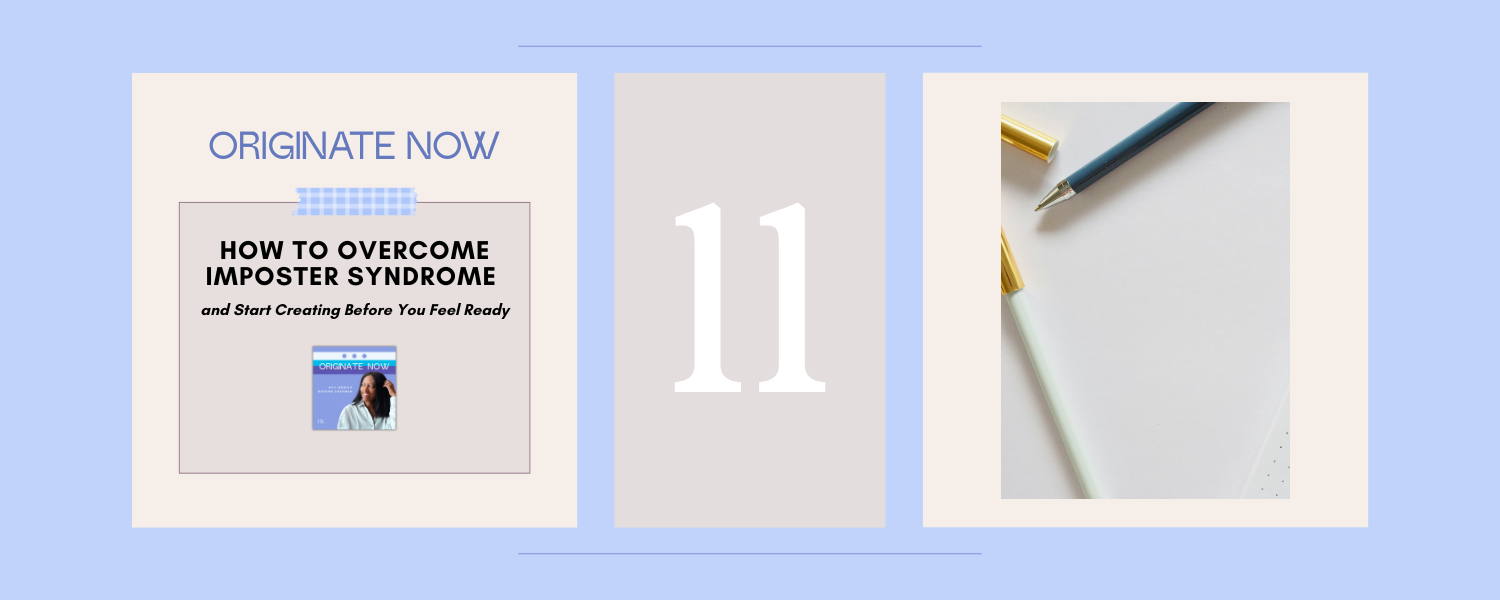How to Overcome Imposter Syndrome and Start Creating Before You Feel Ready
Have you ever sat on a great idea? Not because it wasn’t good, but because you felt like a fraud? Like you weren’t good enough to create it, share it or put it out there?
Maybe you’ve whispered to yourself:
“Who do I think I am to do this?”
“Someone else is already doing it better.”
“What if I fail… and people find out I don’t belong?”
If so, you’re not alone. In this episode of Originate Now, we’re diving headfirst into imposter syndrome — what it is, why creatives experience it more intensely, and how to move through it without letting it control your work, your worth, or your creative momentum.
In this Episode, We Discuss
- Why imposter syndrome isn’t just in your head — it’s rooted in both psychology and social perception
- Four science-backed strategies to help you overcome imposter syndrome and reclaim your creative confidence
- How the pressure of creative work can amplify self-doubt
- A personal story about my auditioning days (and how improv changed everything)
- Why waiting to ‘feel ready’ before you start creating is the real trap

Words from the Show
“Imposter syndrome tricks us into thinking we have to eliminate fear or the sneaky thought of being unworthy before we can move forward… That we have to feel fully confident, completely prepared and undeniably ready before we start creating, speaking up or putting ourselves out there…”
— from the episode
Whether you’re a filmmaker, writer, entrepreneur, or multi-passionate creative, this episode gives you real tools to help you move from overthinking to action, and from doubt to direction.
Quote of the Week: “I truly believe that the privilege of a lifetime is being who you are. Your ability to adapt to failure and navigate your way out of it absolutely 100 % makes you who you are. There are no prerequisites to worthiness. You’re born worthy and I think that’s a message a lot of women need to hear.” – Viola Davis, from her book Finding Me
So, What Is Imposter Syndrome?
Coined in 1978 by psychologists Pauline Clance and Suzanne Imes, imposter syndrome refers to the persistent internal belief that you’re not as capable or talented as others think you are — even when there’s plenty of proof that you are.
Research shows that up to 70% of people experience imposter syndrome at some point in their lives. But for creatives, it hits harder. Why?
Because creative work often comes with:
- Success is often defined by perception
- Lack of external validation until a project is finished
- High personal identity tied to the work itself
If your internal monologue says things like, “I’m not good enough,” “I’m not qualified,” or “I’m just lucky” — you’re likely in it. But you can rewire it.
4 Science-Backed Ways to Overcome Imposter Syndrome
1. Name It to Tame It
Using a technique called affect labeling, simply naming what you’re feeling (“This is self-doubt”) helps deactivate fear centers in the brain and increase clarity. Call it out and keep going.
2. Celebrate Progress, Not Perfection
According to psychologist Carol Dweck’s research on growth mindset, believing that you can improve through effort leads to greater resilience and creativity. Keep a Proof File: a digital folder of kind emails, testimonials, or screenshots of things you’ve finished.
3. Take Action Before You Feel Ready
Confidence doesn’t come first. Action does. Behavioral activation studies show that action rewires belief. Publish the draft. Send the pitch. Progress over perfection.
4. Anchor Yourself in Community
Community quiets imposter syndrome. Even hearing someone you admire say, “I feel that way too” can shift everything. Find your people — whether it’s a group or a coach — and stay connected.
Creative Challenge of the Week
Listen to this week’s episode for the creative challenge of the week!
What I’m Learning
I’m learning to take my time. Instead of rushing toward completion or control, I’m trying to stay present in the process and allow things to evolve.
📩 Loved This Episode?
If imposter syndrome has been your unwanted co-star, I hope today gave you a new script. One where you get to take the lead.
🎧 Hit “Follow” on your podcast player (and follow along on our Podcast page!)
💬 Leave a quick review
📤 Share this with a creative friend who’s ready to step out of their doubt and into their creative power
And remember:
You don’t need permission to create. You just need to start!
Mentioned in the Episode
- Finding Me by Viola Davis
- Carol Dweck on Growth Mindset
- Frontiers in Psychology (2020): Study on tracking small wins
- Journal of Behavioral Science: 70% experience imposter syndrome
